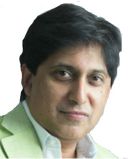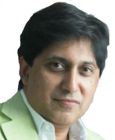Addiction
The Divisive Dialogue
Why we should attend to this new trend that is sweeping across the world.
Posted January 12, 2021

Conflicts and divisive opinions are threatening our very existence, psychologically. Some experts explain that the economic consequences of the pandemic will trigger and intensify armed conflict in some regions. Healthcare workers, overwhelmed and stressed, have greater interpersonal disagreement and conflict now. And the pandemic has been greatly politicized, thereby highlighting differences of opinion. To make this worse, when there are crises of any kind, we may unconsciously defend against that anxiety by holding to our own points of view even more strongly.
In my opinion, this constant state of taking sides is becoming addictive. And there's an uncanny likeness between feeling "alive" through conflict, and exclusively turning to substances as an escape. They are both external stimuli.
The psychoanalyst Marion Oliner explains this predicament well:
"Multiple factors play a part in the inability of certain patients to assess the role of their inner world in the disturbances for which they seek help because they base their judgment on perceptions that reinforce the conviction that a symptom is caused by organic or external factors, not by intrapsychic conflicts. Similarly, due to their omnipotence, narcissistic patients typically need to disown any action or thought in which they had a real or imagined responsibility and project the blame on external factors. It is a defense based on projection that externalizes a complex relationship to the external world. It attempts to displace the agency—change activity into passivity, aggression into masochism ... "
Oliner explains that there is an excessive recourse to external processes, the way in which we tend to fixate on the pandemic or political conflicts. When this happens, we become more operational and process-oriented, rather than examining our own psychological complexity and shadows. Procedures, to-do-lists, exercises, masks—all of which have their place—completely displace the tendency to examine ourselves. This dearth of introspection exacerbates the reliance on the external to feel alive. And we perpetuate our divisive dialogues so that something—anything—can activate us.
Nobody is exempt from this malady. We are all subject to the manipulation of outside forces, and we all have opinions, one way or another. These opinions highlight differences. And the only thing we know how to do with differences is to debate, divide, and conquer.
Metaphorically speaking, we might learn other options from both natural and constructed examples. The day does not fight with the night. The piano needs both black and white keys. Debate is our go-to when we have differences, but wouldn't it be a great addition to have just a little more peace of mind and other ways to manage differences outside of this external method of "conflict?"
So, how do we stop this addiction to divisive dialogue?
- Do you have an addiction to a one-sided opinion and conflict? Recognize what you are losing when you stay on one side. It's the same thing we lose when we do not travel, or when we do not eat food other than what we grew up with, or when we do not understand other generations or genders. We lose the benefit of broadening our horizons, and the delight of discovery that what we thought we were might be more expansive than we initially realized.
- Make a habit of pausing when you feel strongly about something. When your brain is on high alert like a tripped alarm, it doesn't help how you think. It doesn't; make for greater success. And it worsens the possibility of good health or quality of life. Ask, "What could I be missing? What if there is no "right" or "wrong" but simply people with different opinions?"
- Take a look at the 12 principles of AA to see how you fare on the conflict addiction front: Do you feel a sense of hope that your life can be defined outside of this realm of conflict? Can you surrender to positive forces that can shape your life? Do you have the humility to see your own shadows? Does love feature strongly in your life? Do you have the discipline to prioritize love over hate?
- Is there variety in your life and conversations? Addiction robs you of your own diversity and complexity. It takes control of your life and processes. Add variety to your day's actions and conversations.
- Do you recognize how your violence or violent opinions toward others is actually hurting you as well? Reflect on this question, and ask yourself if your addiction has anything to do with being frustrated about your own mental life.
Debate may be energizing. But divisive dialogues are tearing the fabric of our society and placing our own psychologies at risk of "conflict addiction" as well.


